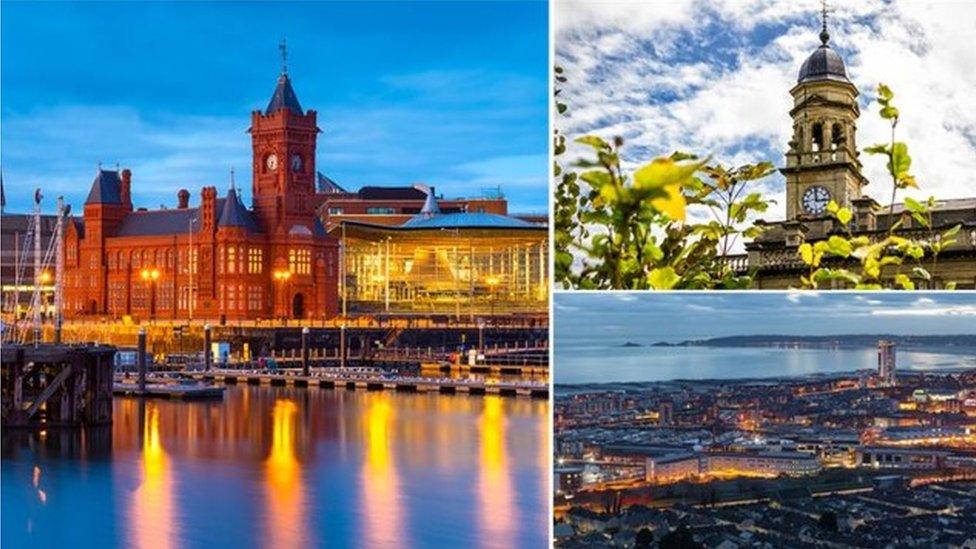Covid: Cardiff and Swansea go into local lockdown
- Published
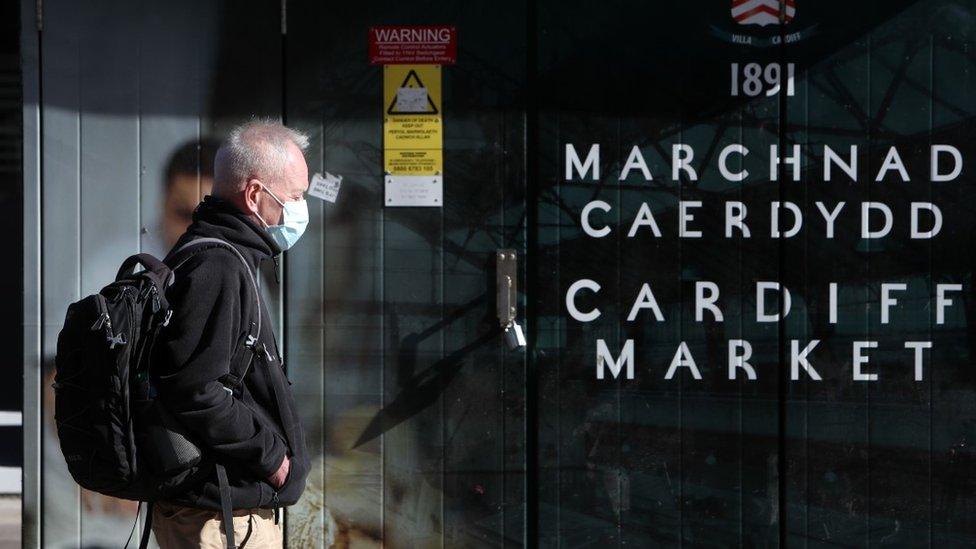
Restrictions will now apply in Wales' capital city
Wales' two biggest cities have gone into lockdown, which started at 18:00.
The changed status of Swansea and Cardiff took the number of Welsh local authority areas under heightened Covid restrictions to eight.
It follows the first localised lockdown in Wales, in the town of Llanelli in Carmarthenshire, which came into force on Saturday evening.
It means 1.5 million people - about half of Wales' population -are now under lockdown.
Earlier on Sunday, it was confirmed that three other council areas - Neath Port Talbot, Torfaen and the Vale of Glamorgan - will face the same measures from 18:00 BST on Monday.
The restrictions are the same as those affecting people living in Merthyr Tydfil, Bridgend, Blaenau Gwent, Newport, Rhondda Cynon Taf and Caerphilly, which were already in lockdown.
When asked if Wales could see a national lockdown, First Minister Mark Drakeford told the BBC's Politics Wales programme: "We couldn't possibly rule it out.
"We're trying to do it in a way that balances both the health and the economic needs of Wales," he said.
Swansea hit a seven-day rate of 56 new cases of coronavirus per 100,000 on Friday, while Cardiff reached 38 cases per 100,000.
But the number in Llanelli was 152 cases per 100,000 - which is why the Welsh Government decided to bring in restrictions there a day earlier.
The whole of Carmarthenshire was not put into lockdown because the rate in the rest of the local authority area was 18.
Llanelli town is in the top three places with the highest weekly infections rates, alongside Blaenau Gwent on 202 per 100,000 and Merthyr Tydfil at 169 per 100,000.
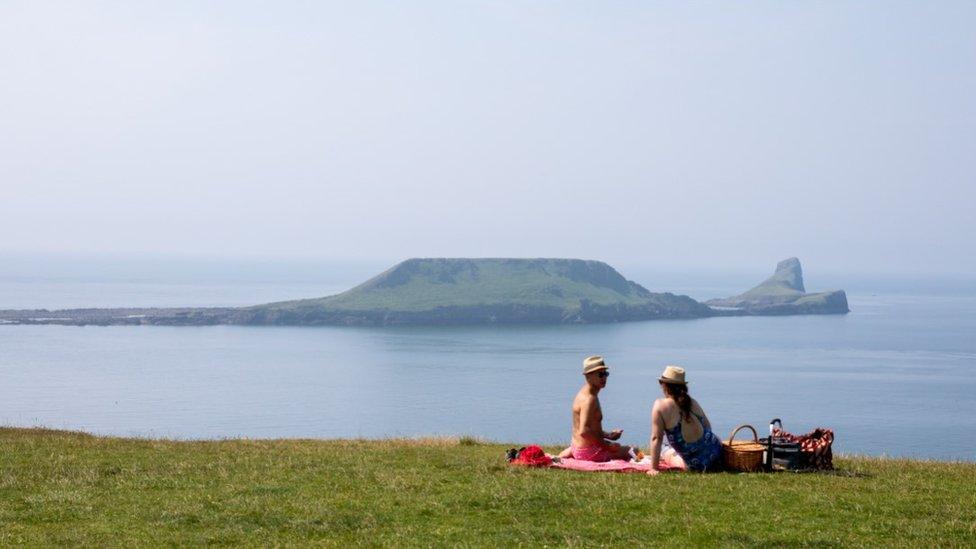
Rhossili and other Gower beauty spots are out of bounds for anyone from outside Swansea
Under the rules, nobody is able to enter or leave the affected areas without a "reasonable excuse".
People are allowed to travel outside their area for a limited number of reasons.
These include going to work if they are not able to work from home, to go to school, give care and buy food or medical supplies.

How are the rules affecting you? Share your experiences by emailing haveyoursay@bbc.co.uk, external.
Please include a contact number if you are willing to speak to a BBC journalist. You can also get in touch in the following ways:
WhatsApp: +44 7756 165803
Tweet: @BBC_HaveYourSay, external
Please read our terms & conditions and privacy policy
If you are reading this page and can't see the form you will need to visit the mobile version of the BBC website to submit your question or comment or you can email us at HaveYourSay@bbc.co.uk, external. Please include your name, age and location with any submission.
- Published27 September 2020
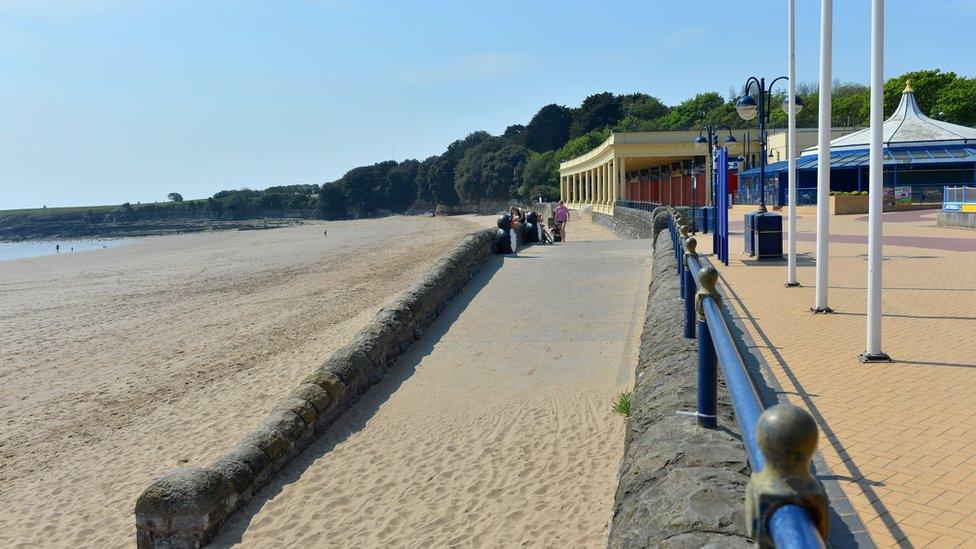
- Published26 September 2020
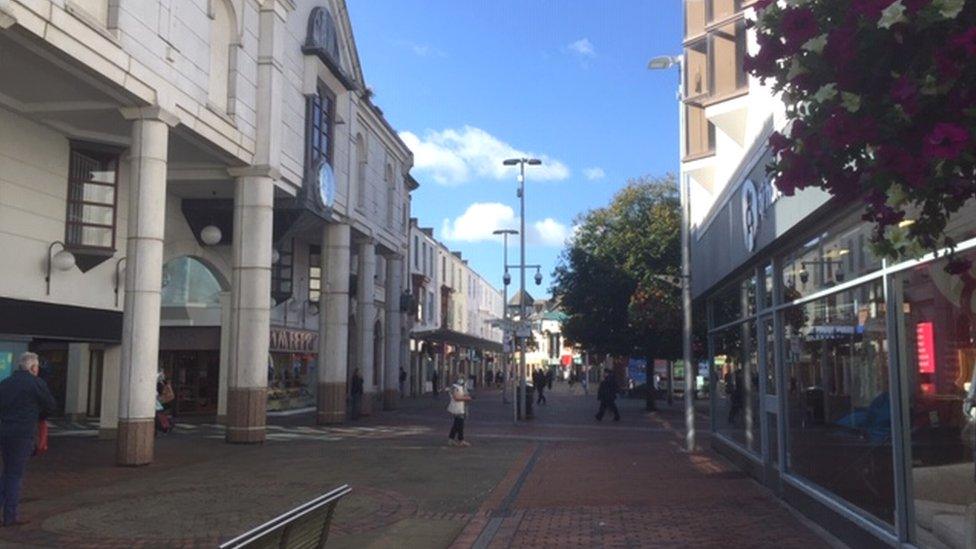
- Published25 September 2020
